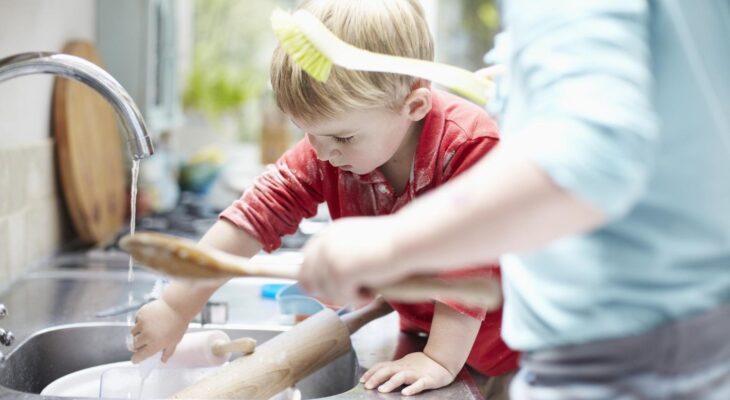Getting children involved in household responsibilities can be a game-changer for both their development and the smooth running of your home. It teaches them valuable life skills, instills a sense of responsibility, and helps lighten your load. Here are some effective strategies to involve your kids in household chores.
Start Young
Introducing chores to children at a young age helps normalize the idea that everyone contributes to the household. Even toddlers can participate in simple tasks like putting away toys or helping to sort laundry. The key is to make these tasks fun and age-appropriate, setting the foundation for more responsibilities as they grow.
Make It Fun
Turning chores into a game can make them more appealing to kids. Use timers to see how quickly they can complete a task, or create a chore chart with stickers and rewards. Play upbeat music and turn cleaning into a dance party. When chores are enjoyable, kids are more likely to participate willingly.
Set Clear Expectations
Clearly explain what is expected for each task and demonstrate how to do it properly. Use simple, step-by-step instructions and be patient as they learn. Consistency is crucial, so make sure the expectations remain the same each time the chore is performed.
Provide Age-Appropriate Tasks
Assign chores that match your child’s age and ability. Younger children can handle tasks like dusting, feeding pets, or setting the table. Older kids can take on more complex responsibilities such as vacuuming, doing dishes, or mowing the lawn. Gradually increase the difficulty of tasks as they become more capable.
Create a Chore Schedule
Develop a weekly chore schedule that outlines each family member’s responsibilities. This helps everyone know what is expected and when. Display the schedule in a common area so it’s easily accessible. Rotate tasks to keep things interesting and fair.
Lead by Example
Children are more likely to participate in household chores if they see their parents actively involved. Lead by example and work alongside them. This not only demonstrates the importance of contributing to the household but also provides an opportunity for quality time together.
Offer Praise and Encouragement
Positive reinforcement goes a long way in motivating children. Praise their efforts and celebrate their accomplishments, no matter how small. Acknowledging their contributions builds their confidence and encourages them to continue helping out.
Teach the Value of Teamwork
Emphasize that keeping a household running smoothly requires teamwork. Explain how everyone’s contributions make a difference and help the family function better. This fosters a sense of community and shared responsibility.
Be Patient and Flexible
Understand that children may not complete tasks perfectly, especially at first. Be patient and provide guidance and corrections as needed. Flexibility is also important; if a child is struggling with a particular task, offer assistance or reassign the chore.
Make Chores Part of the Routine
Integrate chores into the daily routine so they become a regular part of life rather than a burden. Consistency helps children develop good habits and understand that contributing to the household is a normal expectation.
Involving your children in household responsibilities not only eases your workload but also teaches them essential skills and values. By making chores fun, setting clear expectations, and providing positive reinforcement, you can encourage your kids to take an active role in maintaining the home. With patience and consistency, you’ll see them grow into responsible and capable individuals.









